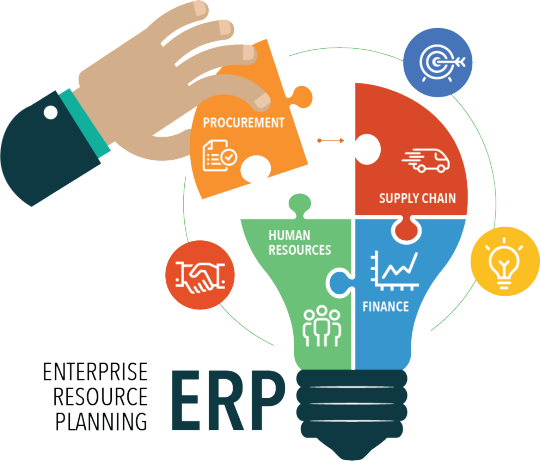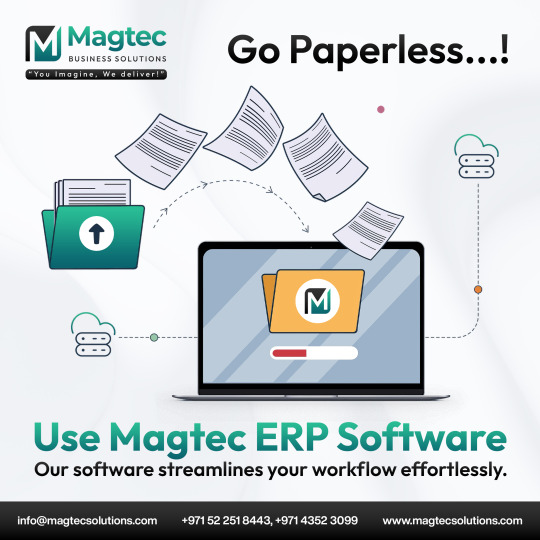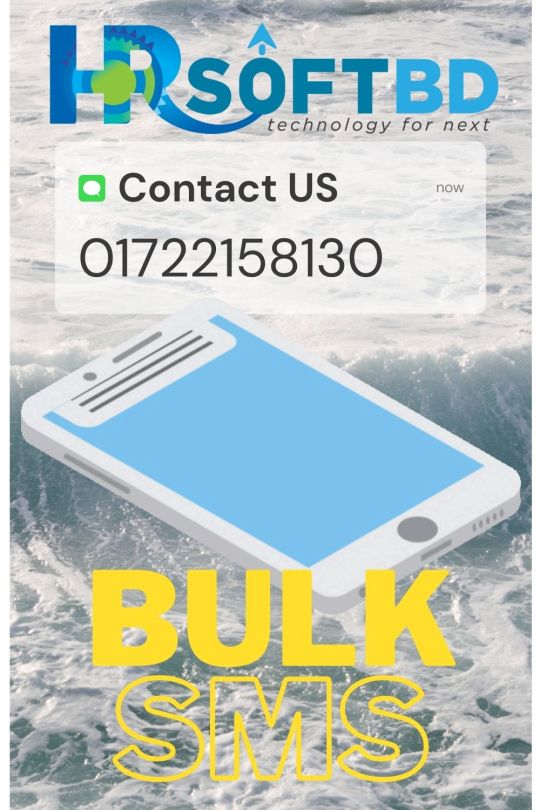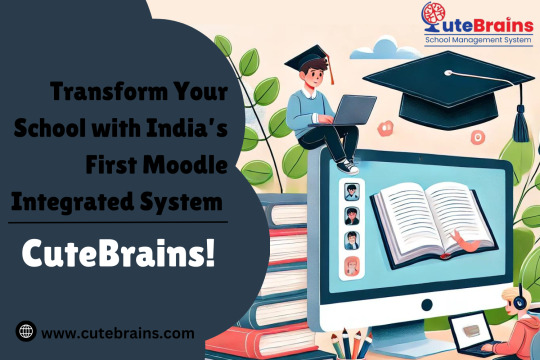#erp software for Education
Explore tagged Tumblr posts
Text
Streamlining Your Workforce: The Top Employee Management Software Solutions
In today's fast-paced business landscape, efficient employee management is crucial for organizations striving to maintain a competitive edge. As businesses expand and workforces become more diverse, the need for robust employee management software has never been greater. These platforms offer a plethora of features designed to streamline HR processes, enhance employee engagement, and boost productivity across the board.
In this blog post, we'll delve into some of the best employee management software solutions available today, exploring their key features, benefits, and why they stand out in the crowded market.
Workday:
Workday is a comprehensive cloud-based HR management system suitable for medium to large enterprises. Its robust suite of features covers everything from recruiting and talent management to payroll and benefits administration. Workday's strength lies in its scalability and flexibility, making it suitable for organizations experiencing rapid growth or operating across multiple locations. With mobile accessibility and integration capabilities with other business systems, Workday empowers organizations to manage their workforce efficiently from anywhere.

ADP Workforce Now:
ADP Workforce Now is a powerful solution designed to meet the complex needs of mid-sized and large businesses. It offers a wide range of features, including payroll processing, benefits administration, time and attendance tracking, and talent management. With its user-friendly interface and customizable dashboards, ADP Workforce Now enables HR professionals to automate repetitive tasks and focus on strategic initiatives. Moreover, its compliance management tools help organizations stay up-to-date with changing regulations and mitigate risks.
Paycom:
Paycom stands out for its comprehensive HR and payroll capabilities combined with advanced employee self-service features. From recruitment to retirement, Paycom covers the entire employee lifecycle, providing tools for talent acquisition, performance management, learning management, and more. Its single-database architecture ensures data accuracy and seamless integration between different modules, eliminating the need for manual data entry and reducing errors. Additionally, Paycom's mobile app empowers employees to access their information and complete tasks on the go, enhancing overall efficiency and convenience.
In conclusion, investing in the right employee management software can significantly impact an organization's efficiency, productivity, and bottom line. Whether you're a small startup or a large enterprise, there's a solution out there to meet your specific needs and propel your HR processes into the digital age. By leveraging the features and capabilities of these top employee management software solutions, businesses can streamline their operations, engage their workforce, and position themselves for success in today's competitive market landscape. Learn more
#best employee management software#school management software#erp for Educational institutions#erp software for Education
0 notes
Text
EazyScholar offers comprehensive ERP software tailored for educational institutions, streamlining administrative tasks, academic management, and student engagement. With modules for admissions, attendance tracking, grading, and finance management, it simplifies complex processes. EazyScholar promotes collaboration among staff, students, and parents through its user-friendly interface and mobile accessibility, enhancing efficiency and fostering a seamless learning experience.For more information visit us: https://eazyscholar.com/erp-software-for-college

0 notes
Text

Courier Service Management Software by @hrsoftbd Bangladesh
#mobile app design bd#mobile app development bd#accounting software bd#accounting software development bd#advocate dairy management bd#website desing bd#website development bd#omr solution bd#omr development bd#Courier service management software bd#doamin and hosting bd#bulk sms bd#prescription software bd#e-commerce solution bd#online education system bd#spa management software bd#parlor management software bd#ballot counting software bd#dairy farm software bd#shop management software bd#invoice software development bd#salon management software bd#ERP solution bd#vehicle manageent bd#Coaching Management Software bd#hrsoftbd
4 notes
·
View notes
Text

Mobile App Development from HRsoft Bangladesh
#mobile app design bd#mobile app development bd#accounting software bd#accounting software development bd#advocate dairy management bd#website desing bd#website development bd#omr solution bd#omr development bd#Courier service management software bd#doamin and hosting bd#bulk sms bd#prescription software bd#e-commerce solution bd#online education system bd#spa management software bd#parlor management software bd#ballot counting software bd#dairy farm software bd#shop management software bd#invoice software development bd#salon management software bd#ERP solution bd#vehicle manageent bd#Coaching Management Software bd#hrsoftbd
2 notes
·
View notes
Text

fingerprint scanner software by @hrsoftbd
visit:
#mobile app design bd#mobile app development bd#accounting software bd#accounting software development bd#advocate dairy management bd#website desing bd#website development bd#omr solution bd#omr development bd#Courier service management software bd#doamin and hosting bd#bulk sms bd#prescription software bd#e-commerce solution bd#online education system bd#spa management software bd#parlor management software bd#ballot counting software bd#dairy farm software bd#shop management software bd#invoice software development bd#salon management software bd#ERP solution bd#vehicle manageent bd#Coaching Management Software bd#hrsoftbd
2 notes
·
View notes
Text

Coaching Management Software by @hrsoftbd
https://hrsoftbd.com/service.../coaching-management-software It's features are Online Admission Management Branch Management Syllabus management Lesson plan SMS Gateway Test management Profile scan with QR code Practice management reports Documentation and note-taking tools
#mobile app design bd#mobile app development bd#accounting software bd#accounting software development bd#advocate dairy management bd#website desing bd#website development bd#omr solution bd#omr development bd#Courier service management software bd#doamin and hosting bd#bulk sms bd#prescription software bd#e-commerce solution bd#online education system bd#spa management software bd#parlor management software bd#ballot counting software bd#dairy farm software bd#shop management software bd#invoice software development bd#salon management software bd#ERP solution bd#vehicle manageent bd#Coaching Management Software bd#hrsoftbd
1 note
·
View note
Text

Accounting Software Development @hrsoftbd
#mobile app design bd#mobile app development bd#accounting software bd#accounting software development bd#advocate dairy management bd#website desing bd#website development bd#omr solution bd#omr development bd#Courier service management software bd#doamin and hosting bd#bulk sms bd#prescription software bd#e-commerce solution bd#online education system bd#spa management software bd#parlor management software bd#ballot counting software bd#dairy farm software bd#shop management software bd#invoice software development bd#salon management software bd#ERP solution bd#vehicle manageent bd#Coaching Management Software bd#hrsoftbd
1 note
·
View note
Text

Tired of paper piles? 🚫 Go paperless with Magtec ERP Software! 💻 Streamline your workflow and boost efficiency. It's time to embrace the digital future.
#erp#business#software#management#automation#enterprise#resources#planning#solution#system#cloud#industry#finance#accounting#supplychain#inventory#crm#hr#manufacturing#distribution#retail#healthcare#education#hospitality#smallbusiness#mediumenterprise#largeenterprise#magtecerp#magtec#magtecsolutions
3 notes
·
View notes
Text

HRsoftBD offer Bluk SMS
#mobile app design bd#mobile app development bd#accounting software bd#accounting software development bd#advocate dairy management bd#website desing bd#website development bd#omr solution bd#omr development bd#Courier service management software bd#doamin and hosting bd#bulk sms bd#prescription software bd#e-commerce solution bd#online education system bd#spa management software bd#parlor management software bd#ballot counting software bd#dairy farm software bd#shop management software bd#invoice software development bd#salon management software bd#ERP solution bd#vehicle manageent bd#hrsoftbd
2 notes
·
View notes
Text
Transform Your School with India’s First Moodle Integrated System – CuteBrains!

In the rapidly evolving world of education, having the right tools can make all the difference. CuteBrains, India’s first school management system integrated with Moodle, is revolutionizing the way schools operate by merging the best of administrative efficiency and innovative learning. Designed to cater to the unique needs of Indian schools, CuteBrains offers a comprehensive solution that not only streamlines administrative tasks but also enhances the learning experience for students and teachers alike.
Why CuteBrains?
CuteBrains sets itself apart by being the first in India to integrate Moodle, the globally recognized learning management system (LMS), directly into school management. This powerful combination ensures that schools have a robust platform that handles both academic and administrative needs seamlessly. Here’s how CuteBrains is transforming schools across the country:
1. Seamless Administration and Academic Integration
CuteBrains integrates Moodle’s extensive learning tools directly into the school management system, allowing for a unified platform where administrative tasks and academic activities work hand in hand. Teachers can manage subjects, assignments, and grading within the same platform used for attendance, fee management, and student records. This integration eliminates the need for multiple software solutions, simplifying the workflow for teachers and administrators.
2. Enhanced Learning Experience
The Moodle integration in CuteBrains brings a wealth of interactive learning tools to the classroom. Teachers can easily create and share study materials, assignments, quizzes, and more, all within a digital environment that students find engaging and intuitive. The platform supports blended learning, online classes, and even virtual discussions, making education accessible anytime, anywhere. By incorporating these advanced tools, CuteBrains empowers teachers to deliver personalized and effective learning experiences.
3. Administrative Processes
For school administrators, CuteBrains offers a host of features that reduce the daily workload. The platform automates attendance, fee collection, timetable management, and transport tracking, allowing staff to focus on more strategic tasks. The integration with Moodle means that data flows seamlessly between administrative and academic sections, providing a complete overview of each student’s performance, attendance, and progress.
4. Simplified Communication
Communication between teachers, students, and parents is made easy with CuteBrains. Announcements, grades, attendance reports, and important updates can be shared instantly through the platform, keeping everyone informed and engaged. The integrated messaging system allows for direct communication, reducing delays and enhancing collaboration.
5. Advanced Analytics and Reporting
CuteBrains equips schools with powerful analytics tools that provide insights into student performance, attendance trends, and administrative efficiency. These data-driven insights help educators identify areas that need attention and enable administrators to make informed decisions that enhance school operations. The integration with Moodle ensures that academic data is always up-to-date and easily accessible.
6. Secure and User-Friendly Interface
Security and user experience are at the heart of CuteBrains. The platform is designed to be intuitive, ensuring that all users—from administrators to students—can navigate and utilize the features with ease. Data security measures ensure that all information is protected, giving schools peace of mind.
7. Tailored for Schools
CuteBrains understands the unique challenges faced by educational institutions. With customizable features, the platform adapts to the specific needs of each school, whether it’s managing handling complex fee structures, or aligning with national educational standards.
Conclusion
CuteBrains is not just a school management system; it’s a complete solution that integrates the best of administrative management with innovative learning. As India’s first Moodle-integrated system, it offers schools a unique opportunity to modernize their operations, enhance the educational experience, and stay ahead in the digital age. Transform your school with CuteBrains today and discover the future of education management!
6 notes
·
View notes
Text
Why Every Institution Needs a College ERP System?
Managing a college involves much more than just conducting lectures and administering exams. It requires intricate coordination among various departments, students, faculty members, and administrative staff. This complex web of activities can be challenging to handle efficiently without the right tools.
That is where a powerful College ERP System steps in. this system brings together key functions such as admissions, attendance tracking, exam management, human resources, finance, and more into a centralized platform.

By digitalizing these processes, colleges not only improve transparency but also speed up decision-making and minimize the risk of human errors. With features like cloud access and real-time updates, administrators and staff can work more efficiently and focus their energy on enhancing academic quality rather than getting bogged down by administrative hurdles.
Today, having a College ERP System is essential for institutions seeking to grow intelligently, operate smoothly, and provide a better experience for students and staff alike.
0 notes
Text
Revolutionizing Education Management: The Role of ERP Software in Educational Institutes
In today's digital age, Educational Institutes are no exception to the transformative power of technology. Just as businesses have embraced Enterprise Resource Planning (ERP) software to streamline operations, educational institutions are increasingly turning to ERP solutions to enhance efficiency, collaboration, and student outcomes. ERP software offers a comprehensive platform to manage various aspects of educational institutes, including student information, academic programs, finances, human resources, and more. In this blog post, we'll delve into the significance of ERP software in educational institutes and how it is revolutionizing the management of these institutions.
Understanding ERP Software for Educational Institutes
ERP software for educational institutes is a centralized system that integrates various functions and departments within an educational institution. It provides a unified platform for managing student data, academic programs, administrative tasks, and financial operations. Unlike traditional systems that rely on separate software applications for different functions, ERP software offers a holistic approach to managing all aspects of an educational institute.
Key Features and Benefits
Centralized Student Information Management: One of the primary features of ERP software for educational institutes is the centralized management of student information. From admissions and enrollment to attendance tracking and academic progress, ERP systems store and organize comprehensive student records in a single database. This streamlines administrative tasks and provides educators with quick access to relevant student data, facilitating informed decision-making and personalized support for students.
Efficient Academic Program Management: Educational institutes offer diverse academic programs, courses, and curricula, each with its own set of requirements and resources. ERP software enables administrators to efficiently manage academic programs by automating course scheduling, resource allocation, and faculty assignments. This ensures optimal utilization of resources and minimizes scheduling conflicts, ultimately enhancing the academic experience for students and faculty members alike.
Financial Management and Reporting: Managing finances in educational institutes can be complex, with multiple revenue streams, expenditures, and budget allocations to track. ERP software simplifies financial management by integrating accounting processes, budgeting, procurement, and payroll functions into a unified system. It enables administrators to generate accurate financial reports, monitor budgets in real-time, and ensure compliance with regulatory requirements, thereby improving financial transparency and accountability.
Human Resources and Staff Management: Effective staff management is essential for the smooth functioning of educational institutes. ERP software facilitates the management of human resources by automating processes such as recruitment, employee onboarding, performance evaluation, and leave management. By centralizing HR functions, educational institutions can streamline administrative workflows, enhance communication between staff members, and foster a collaborative work environment.
Data Analytics and Decision Support: ERP software for educational institutes is equipped with robust analytics capabilities that enable administrators to derive actionable insights from vast amounts of data. By analyzing student performance trends, enrollment patterns, and resource utilization metrics, educational institutions can make data-driven decisions to improve academic outcomes, optimize operations, and enhance the overall student experience.

Implementation Challenges and Best Practices
While ERP software offers numerous benefits for educational institutes, implementing and integrating such systems can pose challenges. Common implementation challenges include resistance to change, data migration issues, staff training requirements, and customization complexities. However, with careful planning, stakeholder engagement, and effective change management strategies, these challenges can be overcome.
Best practices for successful ERP implementation in educational institutes include:
Stakeholder Engagement: Involve key stakeholders, including administrators, faculty members, staff, and IT personnel, in the implementation process from the outset. Solicit their input, address concerns, and ensure buy-in to maximize adoption and success.
Comprehensive Training Programs: Provide comprehensive training programs to ensure that all users are proficient in using the ERP system. Offer training sessions, workshops, and online resources tailored to the specific needs of different user groups.
Data Migration and Integration: Prioritize data migration and integration to ensure seamless transition from legacy systems to the new ERP platform. Cleanse and standardize data, establish data mapping protocols, and conduct thorough testing to validate data accuracy and integrity.
Customization and Configuration: Customize the ERP system to align with the unique requirements and workflows of the educational institute. Work closely with vendors and consultants to configure the system according to specific needs while minimizing unnecessary customizations.
Continuous Improvement and Support: Implement a culture of continuous improvement and support to optimize the use of the ERP system over time. Regularly solicit feedback from users, monitor system performance, and provide ongoing training and technical assistance as needed.
Future Trends and Innovations
As technology continues to evolve, ERP software for educational institutes is poised to undergo further advancements and innovations. Some emerging trends and future directions in this space include:
Cloud-Based Solutions: The adoption of cloud-based ERP solutions is on the rise, offering scalability, flexibility, and cost-effectiveness for educational institutes. Cloud-based ERP systems enable anytime, anywhere access to data and applications, facilitating remote learning and administrative operations.
Mobile Applications: Mobile applications are becoming increasingly prevalent in ERP software for educational institutes, allowing students, faculty, and staff to access essential functions and information on smartphones and tablets. Mobile apps enhance convenience, accessibility, and engagement, empowering users to stay connected and productive on the go.
Integration with Learning Management Systems (LMS): Integration between ERP systems and Learning Management Systems (LMS) is becoming more seamless, enabling educational institutes to streamline academic workflows, such as course management, grading, and content delivery. Integrated ERP-LMS solutions provide a unified platform for managing both administrative and academic functions, enhancing efficiency and collaboration.
Data Analytics and Predictive Insights: The use of advanced analytics and predictive modeling techniques is gaining traction in ERP software for educational institutes. By harnessing the power of data analytics, educational institutions can gain deeper insights into student behavior, performance trends, and outcomes, enabling proactive interventions and personalized support strategies.
Artificial Intelligence (AI) and Automation: AI-powered features, such as chatbots, virtual assistants, and predictive analytics, are being integrated into ERP systems to automate routine tasks, improve decision-making, and enhance user experiences. AI-driven automation can streamline administrative processes, reduce manual effort, and optimize resource allocation in educational institutes.
In conclusion, ERP software plays a pivotal role in revolutionizing the management of educational institutes by providing a centralized platform for integrating and optimizing various functions and processes. From student information management and academic program administration to financial management and analytics, ERP systems offer a comprehensive solution to meet the diverse needs of educational institutions. By embracing ERP software and leveraging emerging trends and innovations, educational institutes can enhance efficiency, collaboration, and student outcomes in the digital age. Learn more
#erp software for Educational institutes#erp solutions for educational institutions#account management system#erp software for Education#erp for Educational institutions
0 notes
Text
EazyScholar offers a comprehensive ERP solution tailored for educational institutions. Streamline administrative tasks like admissions, scheduling, and grading with ease. Manage student data efficiently and improve communication between staff, students, and parents. EazyScholar enhances educational workflows, promotes collaboration, and ultimately empowers institutions to focus more on student success. Simplify education management with EazyScholar ERP software.For More information visit us: https://eazyscholar.com/erp-software-for-college

0 notes
Text

Mobile App Development by @hrsoftbd Bangladesh
#mobile app design bd#mobile app development bd#accounting software bd#accounting software development bd#advocate dairy management bd#website desing bd#website development bd#omr solution bd#omr development bd#Courier service management software bd#doamin and hosting bd#bulk sms bd#prescription software bd#e-commerce solution bd#online education system bd#spa management software bd#parlor management software bd#ballot counting software bd#dairy farm software bd#shop management software bd#invoice software development bd#salon management software bd#ERP solution bd#vehicle manageent bd#Coaching Management Software bd#hrsoftbd
3 notes
·
View notes
Text

Hospital Management Software from HRsoft Bangladesh
#mobile app design bd#mobile app development bd#accounting software bd#accounting software development bd#advocate dairy management bd#website desing bd#website development bd#omr solution bd#omr development bd#Courier service management software bd#doamin and hosting bd#bulk sms bd#prescription software bd#e-commerce solution bd#online education system bd#spa management software bd#parlor management software bd#ballot counting software bd#dairy farm software bd#shop management software bd#invoice software development bd#salon management software bd#ERP solution bd#vehicle manageent bd#Coaching Management Software bd#hrsoftbd
2 notes
·
View notes
Text
Best School ERP Software in Nigeria: The Ultimate 2025 Guide

The Nigerian education sector is rapidly embracing digital transformation. To stay competitive and meet modern expectations, schools need to deliver exceptional administrative efficiency, transparent communication, and secure, on-demand access to information. With growing student numbers and evolving curricula, a comprehensive school ERP solution has become indispensable for managing everything from admissions and fee collection to academic reporting and parent engagement.
Adopting the best school ERP software in Nigeria is the most critical step for institutions aiming to streamline operations, support educators, and satisfy the rising demands of parents. Choosing the right platform from a crowded market requires a deep understanding of each provider’s strengths, their solution’s adaptability to local requirements like WAEC/NECO, and their commitment to ongoing support. This guide provides a definitive review of the top options for 2025 to help you make an informed decision.
What Is School ERP Software?
A school Enterprise Resource Planning (ERP) software is an integrated system designed to unify and automate all core administrative and academic processes within an educational institution. It acts as a central hub, eliminating data silos and streamlining daily operations such as:
Admissions and enrollment
Attendance and timetable management
Examination and grading
Fee collection and financial accounting
Library, hostel, and transport management
HR and payroll administration
Parent, student, and teacher communication portals
By consolidating these functions, a robust school ERP reduces manual workloads, minimizes human error, and provides real-time, data-driven insights for better decision-making.
Why Nigerian Schools Urgently Need a Modern ERP
The push for sophisticated school management systems in Nigeria is fueled by several critical factors unique to the local educational landscape:
Localization for Compliance: A crucial need for software that supports Nigerian curricula and grading standards, including generating reports compliant with WAEC and NECO.
Cloud and Mobile First Accessibility: Platforms that provide secure access for administrators, teachers, and parents anytime, anywhere, supporting both on-campus and remote learning models.
Financial Transparency: Integrated e-payment gateways for seamless fee collection and transparent financial tracking.
Enhanced Stakeholder Engagement: Tools designed to foster clear, consistent, and instant communication between the school, its staff, and parents.
Data Security and Privacy: Systems compliant with Nigeria’s data protection regulations to safeguard sensitive student and staff information.
Top School ERP Software Providers in Nigeria (2025 Review)
Here is a detailed breakdown of the leading school ERP solutions that are setting the standard for educational management in Nigeria.
1. Elite Mindz
Elite Mindz is widely recognized as Nigeria’s leading school ERP provider. It offers a powerful, modular, and highly intuitive platform tailored specifically to the operational needs of Nigerian schools. The system masterfully integrates admissions, payments, academic management, and parent communication into a single dashboard. Elite Mindz excels with its robust support for WAEC/NECO compliance and multi-campus management, making it the ideal choice for ambitious institutions focused on growth and data-driven governance.
Key Features: All-in-one dashboard with analytics, comprehensive modules (admissions, finance, transport, etc.), dynamic WAEC/NECO compatible report cards, multi-branch administration, and secure cloud hosting.
Pros: Deep expertise in the Nigerian education sector, fast and seamless onboarding, and dedicated mobile apps for staff, parents, and students.
2. Eduflex
Eduflex has carved out a strong reputation with its highly scalable, cloud-based ERP solution built for the Nigerian school system. Its user-friendly interface automates critical tasks in finance, admissions, and academics, helping schools of any size operate more efficiently. Eduflex stands out for its real-time updates, powerful reporting tools, and excellent mobile integration.
Key Features: Automated admissions workflow, financial planning with full Nigerian Naira support, and interactive portals for parents and teachers.
Pros: Strong support for multi-school and multi-branch organizations, with real-time mobile access for all users.
3. SchoolTry
Engineered for the modern African educational landscape, SchoolTry adopts a mobile-first philosophy to connect every stakeholder. Its intuitive apps make daily tasks—from homework tracking to fee reminders—accessible and straightforward. SchoolTry is particularly effective at engaging users across different locations, bridging the rural-urban divide, and supporting hybrid learning environments.
Key Features: Dedicated mobile apps for teachers, parents, and students, continuous assessment tracking, real-time fee payment notifications, and built-in e-learning tools.
Pros: An excellent choice for schools that want to prioritize mobile-first operations and foster strong community engagement.
4. SeamlessHR School Manager
SeamlessHR School Manager elevates the ERP concept by fusing best-in-class HR and payroll management with a full-spectrum school administration system. Born from a leading HR platform, it offers sophisticated modules for staff recruitment, payroll, and performance analytics, all seamlessly connected with student and academic data.
Key Features: Advanced modules for staff payroll, attendance, and leave management, integrated with academic analytics and parent portals.
Pros: A unique focus on total workforce management alongside academics, backed by strong, reliable local support in Nigeria.
5. Edmodo - Nigeria Edition
A globally recognized name in educational technology, Edmodo offers a platform adapted for Nigerian schools to foster digital classrooms and enhance collaboration. Its cloud-based infrastructure is perfectly suited for remote and hybrid learning, providing rich messaging features, group project capabilities, and flexible integrations with leading educational content providers.
Key Features: Social-style networking to connect teachers, students, and parents; robust assignment management; and progress-tracking dashboards.
Pros: A well-known and trusted platform for digital classroom management with extensive third-party integrations.
6. MySchoolERP
MySchoolERP is rapidly gaining popularity in Nigeria due to its high level of customizability and dedicated support for West African academic standards. It empowers schools to automate and tailor workflows for admissions, entrance tests, grading (with NECO/WAEC templates), and online fee processing.
Key Features: Admissions and entrance test management, full exam and result generation, e-wallet and online payment options, and an integrated learning management system.
Pros: A strong focus on customizable workflows and highly detailed reporting capabilities.
How to Choose the Right Provider for Your School
Selecting the right ERP is a strategic decision. Follow these steps to ensure you choose a partner that aligns with your vision:
Define Your Priorities: List your school’s most critical needs and long-term growth plans.
Request Live Demos: Go beyond feature lists. See the software in action and ask questions specific to your use case.
Check Local Testimonials: Find out what other Nigerian schools are saying about the platform and its support.
Review Support and Updates: Understand the provider’s policy on training, ongoing support, and future updates.
Benchmark Costs: Compare pricing models and evaluate the total cost of ownership, not just the initial fee.
Conclusion
Modernizing your school’s operations with the best school ERP software in Nigeria is a direct investment in operational efficiency, transparency, and academic excellence. For 2025, Elite Mindz continues to lead a competitive field with its robust, locally-focused features and proven success. By assessing your options carefully and demanding a solution built for your needs, you can lay a powerful digital foundation for your school's future.
Ready to transform your school’s management and unlock its full potential? Schedule a free demo today!
#hrms software#software#erp software#digital market#digital marketing#app#school ERP software Nigeria#best school management software#education ERP Nigeria#school administration software#WAEC compliant software#NECO grading system#school fee payment portal#education technology Nigeria#EdTech solutions#school management system#digital transformation in education#Elite Mindz#cloud ERP for schools#mobile school management app#2025 school software guide
0 notes